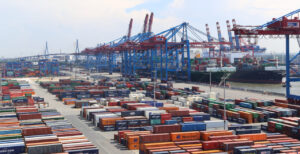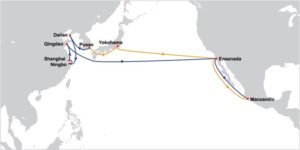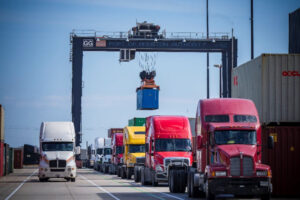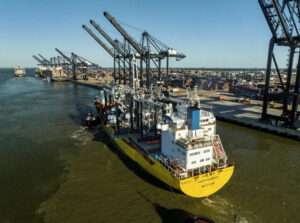Data sharing is framing the smart port conversation in 2019, according to Matthew Wittemeier, Head of Marketing and Sales of INFORM’s Logistics Division, in a new insight.
According to Wittemeier, stakeholders have, in recent years, taken significant strides towards setting industry-wide standards and “hopefully towards industry standards for sharing that data.”
However, he also points out that the industry is “moving further apart when to a willingness to share that data” which begs the question – what will happen next?
For more information on INFORM's solutions for ports and terminals, visit their supplier directory
Wittemeier points out the journey towards industry-wide data standards currently involves several processes, each of which is focusing distinct aspect of maritime and terminal operations.
An example processes is the concept of Port Collaborative Decisions Making (PortCDM), which is focusing on the vessel and port side of the equation, currently being developed Mikael Lind and Michael Bergmann at RISE Viktoria.
A recent Port Technology technical paper from INFORM looked at agile optimization in ports and terminals
Another comes from the Port Equipment Manufacturers Association (PEMA), which is working on defining hardware equipment standards, which was presented at TOC Europe 2018.
The variety of developments towards achieving data standards, as Wittemeier points out, is exciting, but there are still a number of challenges the industry must face up to.
INFORM's Dr Eva Savelsberg discusses the challenges around managing data
These include trying to bring competing frameworks together into a single comprehensive system and involving software vendors in PEMA discussions.
All in all, Wittemeier is positive about the immediate future, and points to the Port of Rotterdam’s PRONTO system as an example of how data sharing can save fuel and cut CO2 emissions.
In particular, he points to PTI’s Container Terminal Automation Conference (CTAC) event as a vital opportunity to accelerate the conversation around data standards.
“I’m hoping that the ideas around data sharing,” Wittemeier concludes, “in particular that sharing data is not, in principle, a bad thing, but rather an advantage – can be tabled and addressed.”










